#who was also vocal on social justice issues
Explore tagged Tumblr posts
Text
I know it's the bare minimum at this point, but for what is worth, I am glad Annie Lennox shouted in favour of a ceasefire in such a big event, such as the Grammys.
#all that while paying tribute to Sinead O'Connor#who was also vocal on social justice issues#and also declined to play in Israel 10 years ago#ceasefire#ceasefire now#i stand with palestine#permanent ceasefire#annie lennox#sinead o'connor#music#the grammys#the grammys 2024#grammys#grammys 2024#grammys awards#pro palestine#palestine#free free palestine#current events#free gaza#gaza#scorpion-flower#we were the kings and the queues
17 notes
·
View notes
Text
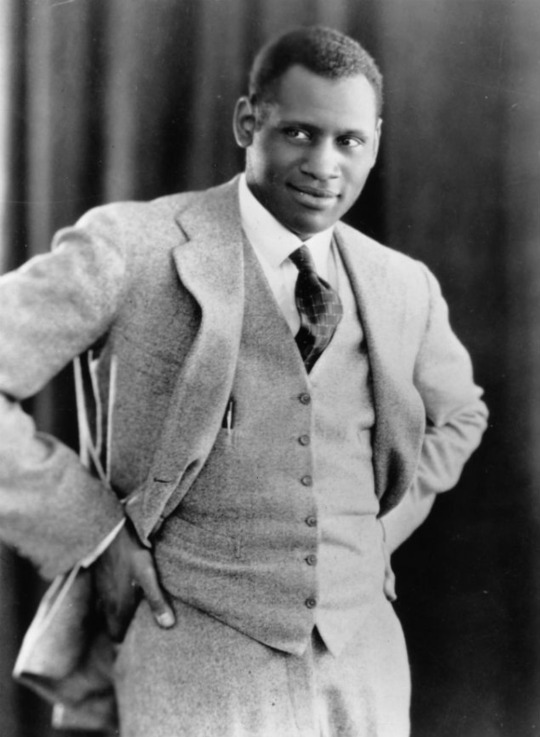
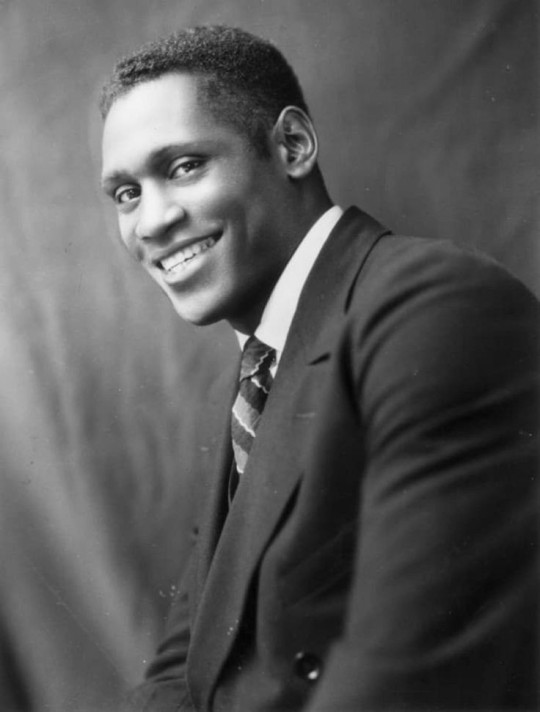
Paul Robeson (1898–1976) was an American singer, actor, athlete, and activist who became a prominent figure in the 20th century for his artistry and commitment to social justice. Born in Princeton, New Jersey, Robeson excelled academically and athletically, earning a scholarship to Rutgers University, where he was a standout football player and valedictorian of his class. He later earned a law degree from Columbia University but left the legal profession due to racial discrimination.
Robeson gained international fame for his deep bass-baritone voice and powerful stage presence. He is best remembered for his performances in productions such as Show Boat (notably singing "Ol' Man River") and Othello, which he portrayed on stage in both the U.S. and the U.K. He also had a successful recording and film career.
Robeson was a vocal advocate for civil rights, labour rights, and anti-colonial movements. He criticized racism in the U.S., supported the labour movement, and opposed fascism. His outspoken support for socialism and his association with the Soviet Union during the Cold War led to his blacklisting in the U.S., a significant decline in his career, and heavy government surveillance.
In his later years, Robeson's health declined due to a combination of medical issues and the stress of political persecution. He retired from public life in the mid-1960s and lived out his final years in Philadelphia.
Paul Robeson died on January 23, 1976, at the age of 77, from complications of a stroke. He left behind a legacy as a trailblazing artist and a fearless advocate for equality and human rights.
#black people#black history#black#blacktumblr#black tumblr#pan africanism#black conscious#africa#black power#black empowering#paul robeson#biography#black revolutionaries
202 notes
·
View notes
Note
Gregory Peck is not only a certified hunk of a man but a great actor and a genuinely good person.
He starred in the film version of the novel Gentleman’s Agreement which was “Hollywood’s first major attack on anti-semitism” which features Peck as a magazine writer who pretends to be Jewish so he can experience personally the hostility of bigots and then calls out and exposes antisemitism and this film was made in 1947 like only two years after the end of World War II so historically an important film(I love this film and think its underated like its great and like Greg looks amazing as he rails against bigots). I could make an argument, and I have honeslty thought about writing a paper on it, that a majority of his films tackle some important issue whether it be antisemitism (Gentleman’s Agreement), racism (To Kill a Monckingbird), nuclear war (On the Beach), post-war discontent and PTSD (The Man in the Gray Flannel Suit), the futility of war (Pork Chop Hill) etc.
His daughter Cecilia said “ My father was a champion of stories that needed to be told, like To Kill a Mockingbird, Gentleman’s Agreement, and On the Beach. He was not afraid of films that championed diversity, equality, and tolerance. He was deeply intelligent, and also very funny in real life.”
He was against the House Un-American Activities Committee and their investigation of “alleged communists” in the film industry and signed a letter deploring their actions in 1947. He was outspoken against the Vietnam War, while at the same time supportive of his son who was fighting there. He produced the film version of the play The Trial of the Catonsville Nine about the prosecution of a group of Vietnam protestors for civil disobedience. Peck said “I decided to make the film because the play confirmed my thinking that the Vietnam War [was] an abomination.” His outspoken-ness against the Vietnam war and general political activism put him on Nixon’s “enemies list” (honestly what an icon).
He was a vocal supporter of a worldwide ban on nuclear weapons and was a lifelong advocate for gun control.
He and his wife Veronique often hosted dinners at their home in support of the arts and humanitatian or social justice causes. His daughter
He was Catholic but took a pro-choice stance on abortion and supported gay rights.
He was the president of the Academy of Motion Pictures Arts and Sciences (1967-1970) and postponed the awards following the assasination of MLK.
He was honored with the Presidential Medal of Freedom in 1969 for his lifetime humanitarian efforts and he also won the Jean Hersolt Humanitarian Award.
He didnt just play the handsome hero on the big screen he was one in real life.
Now some photos of him looking good:






Gregory Peck vs Paul Robeson
162 notes
·
View notes
Text
Queen Latifah RULE BREAKER

We all know this beautiful woman, the woman that set the record and stereotypes straight, starred in our favorite movies, TV shows, and hosted for the best award ceremonies.
Queen Latifah: A Legacy of Empowerment, Art, and Resilience
Queen Latifah—born Dana Elaine Owens on March 18, 1970, in Newark, New Jersey—has been a defining force in music, film, and television for decades. With her powerful voice, trailblazing career, and unwavering sense of self, she has inspired millions across generations. Today, we take a deeper look at her journey from a young girl with a dream to an international icon.
The Origins of the Queen Latifah Name
Queen Latifah’s name tells a story of strength, cultural influence, and self-discovery. Her real name, Dana Owens, was transformed when she was just eight years old. Inspired by a book her cousin brought her that contained Arabic names, Dana chose "Latifah," which means "delicate, sensitive, kind, and nice" in Arabic. But it was the addition of “Queen” that truly shaped her public persona. "Queen" was a deliberate choice that reflected her desire to embrace a strong, proud, and unapologetically Black identity, one that was reinforced by her mother, Rita Owens, who laid the foundation for Latifah's self-empowerment.
As Latifah herself has said, her name represents both her personal growth and her cultural heritage, as well as her wish to project strength and dignity in all that she did. Little did the world know at the time, this name would become synonymous with talent, authenticity, and advocacy.
From Rap to Stardom
Latifah’s rise to prominence began in the late 1980s, during a time when hip-hop was still an emerging genre. A pivotal moment came when DJ King Gemini recorded a demo of her rap song, Princess of the Posse, and shared it with Fab 5 Freddy, the host of Yo! MTV Raps. This moment set the stage for Latifah’s breakthrough, which came when Tommy Boy Records signed her at just 18 years old. In 1989, she released her first single, Wrath of My Madness, marking the beginning of a legendary career in hip-hop.
Her 1993 album Black Reign further solidified her status in the rap world, with the groundbreaking track “U.N.I.T.Y.” becoming an anthem for women’s empowerment. The song addressed issues of street harassment, domestic violence, and disrespect towards women in hip-hop culture, earning her a Grammy Award for Best Rap Solo Performance in 1995. U.N.I.T.Y. remains one of her most iconic tracks, resonating deeply with fans worldwide and sparking conversations about respect and equality.
Breaking Barriers in Hollywood
While her rap career set the foundation for her fame, Queen Latifah’s star power only expanded as she ventured into acting. With standout performances in films like Set It Off (1996), Bringing Down the House (2003), Beauty Shop (2005), and Last Holiday (2006), Latifah proved she was a versatile and powerhouse performer. Her voice also found a home in the animated Ice Age franchise, further demonstrating her ability to conquer multiple entertainment mediums.
Her versatility didn’t stop there. Latifah also made history as the host of her own talk show, The Queen Latifah Show, showcasing her charisma and giving a platform to diverse voices. In every role she took on—whether it was acting, singing, or hosting—Latifah brought a sense of authenticity and confidence that resonated deeply with her audience.
A Role Model for Empowerment
Beyond her success in music and film, Queen Latifah has consistently used her platform to promote social justice and support communities in need. She’s been vocal about the importance of self-love, body positivity, and the representation of African Americans in the media. In her 2010 book, Put on Your Crown: Life-Changing Moments on the Path to Queendom, she opened up about her own struggles with self-doubt, body image issues, and the challenges of navigating a male-dominated music industry. Despite these obstacles, Latifah emerged stronger, becoming a role model for countless women and people of color around the world.
Her activism was also evident in the themes of her music, especially in U.N.I.T.Y., which challenged the toxic masculinity and misogyny that often-plagued hip-hop culture. Through her art, Queen Latifah became a champion for respect and equality, and she has remained committed to elevating marginalized voices throughout her career.
Queen Latifah’s Legacy
Queen Latifah’s influence transcends the worlds of music and film. She redefined what it means to be a woman in hip-hop, proving that success and authenticity could coexist. Her contributions to the genre paved the way for countless other female rappers who followed in her footsteps, helping to reshape the traditionally male-dominated landscape.
Her legacy is one of resilience, creativity, and purpose. From her chart-topping rap albums to her memorable performances in films and television, Latifah has shown that true queens do not simply exist—they create legacies that inspire generations. Her authenticity, passion for her craft, and dedication to social change continue to make her one of the most influential cultural icons of our time.
My Gratitude for Queen Latifah
Growing up watching Queen Latifah, I was always inspired by her energy, confidence, and versatility. Whether she was rapping about unity or taking on a powerful role in a movie, she always commanded the screen. What stands out to me most is her unwavering ability to remain true to herself while breaking barriers in every industry she touched. In a world that often tries to limit people based on stereotypes, Latifah showed us that we could be more than what society expects us to be. She has always been unapologetically herself, and that authenticity is what makes her a true icon.
As I reflect on Queen Latifah’s journey, I am grateful for the legacy she continues to build. She’s not just a rapper, actress, or TV host; she’s a trailblazer who has left an indelible mark on the world.
And to close with one of her most iconic lines: “Now everybody knows there’s exceptions to this rule, now don’t be getting mad, when we playing, it’s cool, but don’t you be calling me out my name, I bring wrath to those who disrespect me like a dame.”
Latifah’s words continue to resonate and inspire—long may she reign as the queen she is!
!*THIS IS RESEARCH I SEARCHED AND WHAT I LIKE ABOUT THE CELEBRITY OR MAIN FACTS THAT STOOD OUT TO ME. FEEL FREE TO INFORM, CORRECT, SHARE, AND/OR ADD MORE KNOWLEDGE YOU KNOW ABOUT THE CELEBRITY.*!
26 notes
·
View notes
Text
Someone sent an ask about green and black beetles and it got me thinking about DC's Martians' designs because of how I designed blue beetle and the fact that green beetle is martian. So I redesigned martians :]

I have lots of beef with american alien concepts (xenomorph too but less for various reasons) especially intelligent alien species' designs. Yes, i understand the audience needs to empathize with our alien heroes, Cameron, but then they stop being alien. Aliens don't need to be appealing visually, psychologically or socially to us at all, if you are intending to write them seriously.
But of course, all this applies only if you want your writing and design to be realistic or close to reality.
I have several noted points about DC's Martians I'd like to question and or correct in my design, I'll be going off of young justice's martian designs because those are the least human canon designs of them and the most interesting ones. (They can mostly be seen at the beginning of season 4 of YJ) here's the green beetle without the suit and miss martian for reference:
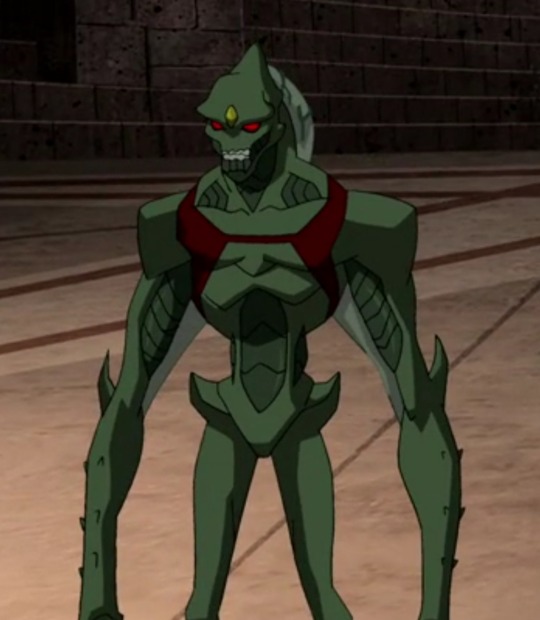

In the show martians are shown to not only have a variety in color but also body type (in some places) which is rare even in an animated show with just humans so big kudos for the animators on that, big fan.
AND martians have webbing between their fingers, arms and torso in this design which could point that they were a water dwelling species in the far past, so also a very big fan of that.
To the redesign:
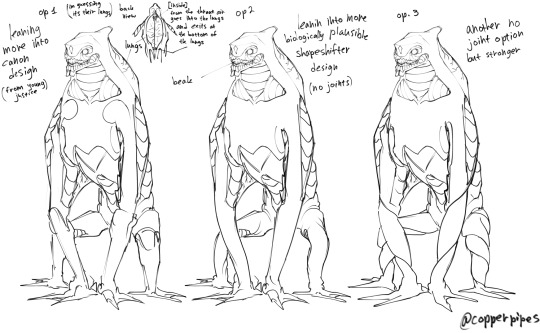
I had a few ideas.
First I got rid of the teeth on the outside and turned them into a beak because that would be the same thing. Proportionally they are also quite different from the original.
I have some issues with martian abilities. The density shifting is ridiculous (leave it to the ghosts who can bend reality) flying would be unnecessary with the gravity on Mars, there shouldn't be a reason why they could do that. Telekinesis too, for what? What would be its purpose? For survival? They would have found a way without it and otherwise it is physically impossible. *huff*
But some are forgivable, like shape shifting and camouflage if you don't have bones which i solved and telepathy which could just be a very specific frequency only they could emit and hear, that could be adjusted depending on who they were speaking with (with the reading thoughts bit just make them loose the ability to lie, problem solved.) Of course that would also mean their vocal cords wouldn't be made for human speech, but that technology can solve.
The weakness to fire could just be because Mars is also a lot colder then earth.

Our biochemistry should be similar enough tho, carbon based n' all. @wazzappp i thought maybe you would want to see this :>
#not tmnt related#green beetle#martian manhunter#dc comics#alien design#speculative biology#spec bio#my art#mars#blue beetle
93 notes
·
View notes
Text
J.K. Rowling: From Struggling Single Mother to Literary Icon
J.K. Rowling, born Joanne Rowling on July 31, 1965, is a British novelist, philanthropist, screenwriter, and manufacturer. She is first-rate recognized for writing the Harry Potter series, which has emerge as a global phenomenon, fascinating readers of every age. Her books have sold over 500 million copies worldwide, been translated into over eighty languages, and adapted right into a a success movie series.

The struggles of J.K. Rowling before Harry Potter
Rowling's adventure to literary stardom turned into some distance from ordinary. She confronted private struggles, including poverty and despair, even as writing the first Harry Potter e-book. Rejected through twelve publishing homes, she persevered, and the e-book changed into in the end ordinary by way of Bloomsbury in 1997. The rest, as they are saying, is history.
The Magic of Harry Potter
The Harry Potter collection, a captivating mixture of fantasy, journey, and coming-of-age themes, has resonated with readers worldwide. The collection follows the life of Harry Potter, an orphaned boy who discovers he is a wizard and attends Hogwarts School of Witchcraft and Wizardry.
Rowling's masterful storytelling, wealthy international-building, and noteworthy characters have made the series a undying conventional. The collection explores normal issues such as true as opposed to evil, friendship, love, loss, and the significance of status up for what is right.
Beyond Harry Potter
Rowling's literary contributions increase past the Harry Potter collection. She has written numerous different novels, including the Cormoran Strike detective collection below the pseudonym Robert Galbraith. She has additionally ventured into screenwriting, co-writing the screenplay for the Fantastic Beasts and Where to Find Them film collection.
Philanthropy and Activism
Rowling is a outstanding philanthropist and activist. She has donated thousands and thousands of dollars to diverse charities, consisting of the ones centered on multiple sclerosis research, poverty relief, and kid's literacy. She is also a vocal suggest for girls's rights, LGBTQ+ rights, and different social justice reasons.
A Legacy of Inspiration
J.K. Rowling's impact on the arena is plain. She has inspired limitless readers, young and old, to include the electricity of creativeness and storytelling. Her Harry Potter collection has sparked a global studying revolution, encouraging a love of books and a passion for learning.
17 notes
·
View notes
Text
Having been raised in a cult that started off as a legitimate church and now seeking faith on my own terms, I’ve recently (as in, like, three days ago) developed a hyperfixation for researching various denominations of Christianity. It’s incredible, how little I knew about what denominations actually believe what.
TW: Reflections on religious extremism and experiences (nothing traumatic, I’m keeping this lighthearted, but I know it can be touchy!)
When my cult was still a church, it was an Assemblies of God church, and I’m fairly certain they still hold to a lot of that doctrine, just with even more heaping helpings of fire and brimstone and doomsday. We were taught to jokingly view Southern Baptists (or just “Baptists,” because they refused to acknowledge American Baptists and I didn’t even realize American Baptism was a THING until recently) as our rivals: they were our polar opposite in practice but equals in theology, and all other denominations just couldn’t get it right or were too scared to break free from Catholicism. We were told Catholics and those who worshiped and believed like them weren’t true Christians and destined for Hell. There was no interdenominational unity and collaboration, nor was there any encouragement to look at other denominations’ doctrine. Ours was right, the Baptists were close enough, and nothing else held any sort of merit.
(I’m pretty sure now they’ve even cut out the Baptist sympathetics, and while it’s become wholly self-contained, they’re still accepted as an AoG church — albeit a more extreme example of the denomination — but I can’t say any of that with certainty. I’d ask my dad but, well, he’s still wholly devoted to the cult, I don’t trust him to be objective in his view. 😅)
I briefly attended an Episcopal church before I moved last year, mostly because it was the polar oppose of what I was raised in and there was something very comforting about that (plus they’re openly supportive of things like LGBTQ+ rights), but ultimately my dad and FB friends kinda shamed me out of attending because “There’s no blessing in structure, sis!”. My hope was to start going to the Episcopal church here where I currently live, but when I showed up last week, there were exactly two people and they gave me rather dirty looks, so I quickly high-tailed it back to my car.
I ended up at a Methodist church because I was running behind and theirs was the only non-Baptist service that hadn’t started yet, and… I dunno. They had some trappings of my birth cult, sang some of the same songs, but there was also a structure to things like I’d seen in the Episcopal church. No hour-long praise and worship where you make a show of screaming and crying harder than anyone else, followed by an hour-long sermon that leads into another two-hour stretch of loud music and light shows and shouldaboughtahyundai steadIboughtakias until everyone was either unconscious or in a state of religious ecstasy; there was an order to things, with opportunities to take time in private prayer at the alter or at your seat, and the sermon was heartfelt and impactful but never once delved into the pastor screaming frantically into the mic. I followed their website to the official doctrine of the United Methodist denomination, and I was shocked to find that I agreed with most of it.
And that shocked me because, due to their notoriously liberal stances and heavy Catholic influence, my dad and those around me always told me that the Episcopal church isn’t really respectable. Most of them, however, consider Methodism a perfectly legitimate denomination that gets enough right to be deemed a proper church… and their doctrine isn’t much more conservative than Episcopalian doctrine. They have no formal stance on queer issues (which I’ll take over “Y’all are going to Hell” any day) but they’re vocal proponents of social justice and sexual education, both things I was taught growing up are evil.
And that’s the long-winded explanation of how I got to where I am now: digging deep into what each denomination actually believes, because I knew my viewpoint was limited by experience and further restrained by indoctrination and trauma, but holy fuck, I didn’t realize just how crazy my cult’s beliefs were until I started comparing all the doctrine. Of course doctrine isn’t everything, I know that, but the more I read, the more and more I realize that the faith I was raised in wasn’t all that Christlike after all.
A side note: my boss let me take half a day off on Sunday to go back to that church. The pastor’s husband came up and greeted me, told me his wife had mentioned meeting me, asked me a couple questions, standard New Person in Church-type stuff. I got about two questions in before I was shaking visibly and so scared I went briefly nonverbal, because for how kindly I’ve been treated and how strong my faith is, I’ve still got hella religious trauma. I alluded to being raised in church and had my trans and enby pride bracelets on, along with my bigender symbol necklace, so I’m pretty sure he could infer exactly why I was so scared.
He clasped my hand and said, in a quiet voice with a little smile, “You’re safe here. This is a safe place. We’re so glad you’re here.” I couldn’t say anything except thank you, but I hope it was enough to express just how deeply those words impacted me.
#it feels good being able to pursue my faith academically as well as spiritually#my dad encouraged study up until I started coming to ‘incorrect’ conclusions and then gently reminded me of what I’m SUPPOSED to believe#so being able to seek all of this out after so many years of fear and repression is freeing in a way words can’t express#peaches screams into the void
20 notes
·
View notes
Text
red from pokemon is autistic
this isnt a new thing i js like psychoanalyzing him ok.
Red, in both the games and manga, show traits of ASD, or Autism spectrum disorder, or just Autism. In the games, it is much easier to spot, however.

1; Speech
In the games, he is completely nonverbal, with the exception of a few times where Red is shown to speak. (Copycat, Masters EX, etc) Masters EX timeline is… Confusing, though in the games, he only speaks once. (Copycat) In the manga, he is shown to speak a lot, though it is harder to see it as autism, it is a spectrum disorder, and one side of the spectrum is never being quiet/having trouble being quiet.
2; Special interests
In the games AND manga, Red very obviously has a special interest in pokemon, given he has caught every type in Kanto and completed the pokedex, he is very intent and interested in pokemon battles, and overall, that's just his major special interest.
3; Sensory issues
Though we don't see much explicit proof of this, I believe that Red has fabric related sensory issues. The reason being, he doesn't change his clothing at all until Masters EX and generation 7, excluding the original red and blue games. In fire red/leaf green, he is 11, in gold/silver/crystal, he is 14. In the pokemon world tournament, he is 19. Why do I mention this? Well, that's because Red wears the exact same outfit for 8 whole years, as opposed to Blue, who changes his outfit throughout the series. A lot, if not all autistic people struggle with fabric related sensory issues, and struggle to find clothing they like the texture of, which causes them to wear the same clothes over and over again.
4; repetition/patterns
Pokemon battles, in my opinion, especially pokemon type advantages and disadvantages, deal with pattern recognition. This is a trait of autism, which leads me to believe, with Red's special interest in pokemon and battling, he has some form of pattern recognition when it comes to typing of pokemon.
In the manga, he is also shown to repeat movements, pick up on phrases a few times, etc, which can count for repetition. The phrases can also count for echolalia in a sense, a common thing with autism. This can also apply to the copycat thing.
5; Stimming/Stimulation
For Red, this is a difficult thing to see. Since in most of his appearances, the sprites don't move, or do not move much, it's hard to decide if he is shown to stim. It's also hard, given he cannot vocal stim, since he is non-verbal. (Games) This is where the manga comes into play, since the manga is more expressive, since that is the point of the manga. To show scenes in more detail. In the manga, he is shown to flail his arms when he's frustrated, (entering saffron city, etc) repeat phrases, which ties into echolalia, etc. Also, in the games, he is shown to have little/no facial expressions.
I feel like him disappearing on Mt. Silver was because he was so overwhelmed and overstimulated all the time with being champion- And thus, ran away with little/no explanation.
6; Over or under empathetic?
Red is shown to be very empathetic towards pokemon, a few people, and that's it. In the manga, however, he is shown to be both overly empathetic and under-empathetic. While he is not super emotional, he still is a bit emotional in the manga. Tying into this, autistic people have a very strong sense of justice. This is shown in both the games and the manga, given team rocket.
7; high or low functioning?
Red is obviously a very high functioning character. He is intelligent, and strategic, given he enjoys pokemon battles.
8; Social
I feel like he was isolated for displaying autistic traits as a kid, hence why Blue(m) was (presumably) his only friend. Also, the scene in the manga where he calls Misty an idiot and gets confused on why she's upset- Peak bluntness, chat. (A trait of autism) He's very blunt and straightforward throughout the manga, as well.
9; overall overview– Is this character autistic?
Very obviously, yes! Red is autistic. He checks out a lot of the boxes, and definitely shows signs of ASD, the most prominent ones being him being non-verbal, his pokemon special interest, and the whole sensory issue thing.
EDIT: also the fact satoshi (THE CREATOR OF POKEMON) is autistic and i believe has stated that red and i believe ash were based off him. quirks brow

#red pokemon#autism#neurodivergent#asd#red is autistic#headcanon#pokespe#pokemon#red pokespe#autistic red pokemon#hes silly
50 notes
·
View notes
Text
Kamala Harris' Rise to Prominence and
Political Vision
Background and Achievements
Kamala Harris is the current Vice President of the United States, making history as the first woman, first Black American, and first South Asian American to hold the position. Her rise to prominence is marked by a series of notable achievements throughout her career in public service.
Harris was born in Oakland, California, to immigrant parents from India and Jamaica. After earning her law degree from the University of California, Hastings College of the Law, she began her career as a prosecutor in the Alameda County District Attorney's Office. She later served as the District Attorney of San Francisco from 2004 to 2011, and as the Attorney General of California from 2011 to 2017.
In 2016, Harris was elected to the United States Senate, becoming the second African American woman and the first South Asian American to serve in the Senate. During her tenure, she gained recognition for her work on issues such as healthcare reform, immigration reform, and criminal justice reform.
Political Vision and Proposed Policies
Kamala Harris' political vision revolves around promoting equality, justice, and opportunity for all Americans. Her proposed policies aim to address various critical issues facing the nation, including:
Women's Rights: Harris has been a vocal advocate for protecting and advancing women's rights, including reproductive rights and equal pay for equal work. She has pledged to fight against any efforts to roll back progress made in these areas.
Healthcare Reform: Harris has supported efforts to expand access to affordable healthcare, including protecting and strengthening the Affordable Care Act (ACA). She has also proposed measures to lower prescription drug costs and improve mental health services.
Climate Change: Harris recognizes the urgent need to address climate change and has proposed a comprehensive plan to transition the United States to a clean energy economy, including investing in renewable energy sources and promoting sustainable practices.
Immigration Reform: Harris supports comprehensive immigration reform that provides a pathway to citizenship for undocumented immigrants and addresses the root causes of migration, such as violence, poverty, and corruption in countries of origin.
Criminal Justice Reform: As a former prosecutor, Harris has advocated for reforms to the criminal justice system, including addressing racial disparities, reducing mass incarceration, and promoting rehabilitation and re-entry programs for formerly incarcerated individuals.
Potential Impact and Challenges
Kamala Harris' political vision and proposed policies have the potential to shape a more equitable and inclusive future for the United States. However, she may face significant challenges in implementing her agenda, particularly in a divided political landscape.
One of the key challenges Harris may face is navigating the complex relationship between the executive and legislative branches of government. Enacting significant policy changes often requires cooperation and compromise across party lines, which can be difficult to achieve in a polarized political environment.
Additionally, Harris' progressive policies may face opposition from more conservative factions who prioritize traditional values or have different economic and social priorities. Overcoming ideological divisions and building consensus on contentious issues will be crucial for the success of her agenda.
Despite these challenges, Harris' experience, determination, and commitment to her principles position her as a formidable figure in shaping the future direction of the United States. Her ability to inspire and unite diverse constituencies, coupled with her pragmatic approach to policymaking, could prove invaluable in navigating the complexities of the American political landscape.
#politics#donald trump#joe biden#potus#democrats#scotus#democracy#trump#heritage foundation#republicans#vote democrat#democratic party#dnc#2024 elections#biden#trump derangement syndrome#fuck trump#trump 2024#traitor trump#2024 election#jd vance#recall every republican#republican party#gop#vote kamala#kamala harris#kamala 2024#kamala for president#harris#election
21 notes
·
View notes
Text
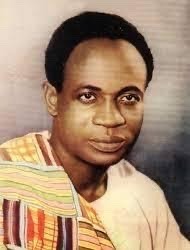
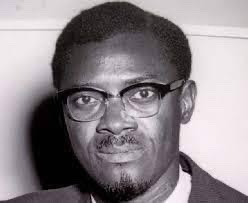
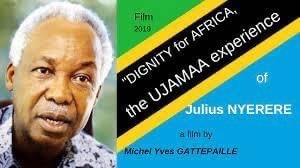
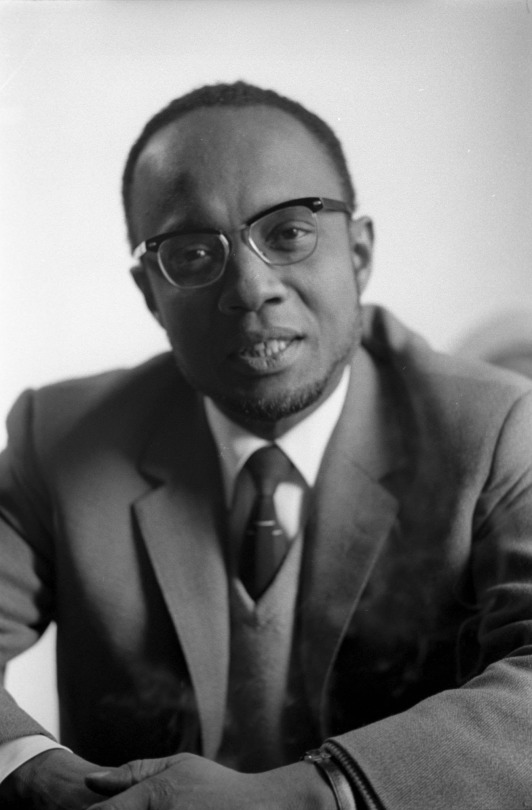
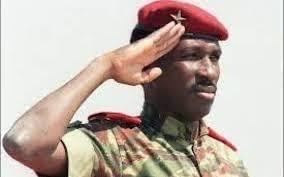
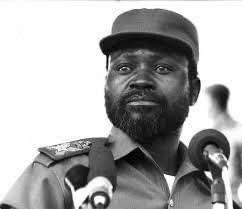

One day in the future, there will be a place named the United States of Africa Federation. It will be a vast territory comprised of many countries. The leaders will convene and decide to unite the region to make it stronger, thus creating a federation.
In the United States of Africa Federation, there will be one prominent leader known as the President. The President will be the leader who will make all the significant decisions. However, the President will not be a dictator. The President will be elected by all the people within the United States of Africa Federation.
They will also have a single currency for all the countries - no more kwachas, nairas, or rand - just one significant currency called the Afri-dollar, making trading and other activities easier. Additionally, they will have one massive army known as the African Defence Force to protect the entire federation from bad actors and keep everyone safe.
The United States of Africa Federation will not be perfect. There will be complex issues to address. The Federation will have to figure out how to share resources and help all the people in need.
Overall, people will work together to create a better future for Africa. They will make Africa strong and proud. It will be a place where everyone will be equal and will respect one another.
This concludes the story of the United States of Africa Federation, prophesied by African revolutionaries who have advocated for the unity of Africa:
1. Kwame Nkrumah (Ghana): Nkrumah was a key figure in the Pan-African movement and played a crucial role in Ghana's independence from British colonial rule. He strongly advocated for African unity and was instrumental in the formation of the Organization of African Unity (OAU), now known as the African Union (AU).
2. Patrice Lumumba (Democratic Republic of Congo): Lumumba was an influential leader in the struggle for Congo's independence from Belgium. He envisioned a united Africa free from colonialism and exploitation. Unfortunately, his leadership was cut short by his assassination in 1961.
3. Julius Nyerere (Tanzania): Nyerere was the first president of Tanzania and a prominent advocate for African unity. He believed in socialism and played a crucial role in the formation of the OAU. Nyerere actively supported liberation movements across Africa and worked towards economic and political integration.
4. Amílcar Cabral (Guinea-Bissau and Cape Verde): Cabral was a revolutionary leader and the founder of the African Party for the Independence of Guinea and Cape Verde (PAIGC). He fought against Portuguese colonial rule and championed the idea of a united Africa. Cabral's ideas on liberation and African unity continue to inspire many.
5. Thomas Sankara (Burkina Faso): Sankara, often referred to as "Africa's Che Guevara," was the president of Burkina Faso. He advocated for self-reliance, social justice, and pan-Africanism. Sankara pushed for economic independence and called for African countries to break free from the shackles of neocolonialism.
6. Samora Machel (Mozambique): Machel was the first president of an independent Mozambique. He was a staunch supporter of African liberation movements and a vocal advocate for African unity. Machel emphasized the importance of self-determination and worked towards regional integration in Southern Africa.
7. Jomo Kenyatta (Kenya): Kenyatta played a crucial role in Kenya's struggle for independence and became the country's first president. While focusing on building a strong and independent Kenya, he also emphasized the importance of African unity and cooperation.
#blacktumblr#black history#black liberation#african history#united states of africa federation#pan africanism
92 notes
·
View notes
Text
Modern Academic AU pt3
All this because I couldn't stop thinking about what kinds of classes Professor Raphael would teach... He's laughing up at me from hell, I just know it.
part 1 and part 2
------------------------------
Kagha (by request!) - Environmental Science. Will only teach courses about political lobbying and activism. She's also a militant vegan and active member of PETA, and won't shut up about it.
Dammon - College of Engineering. Teaches "Advanced Manufacturing Processes" and "Finite Element Analysis", and runs the machining shop. Also teaches a metal sculpture class when there's room in the Art School's budget. He's one of the faculty liaisons for several LGBTQA+ orgs on campus as well, and is completely oblivious to the fact he has a fan club (which is for the best, really)
Zevlor - Campus Security. A retired Green Beret who refuses to talk about his time in the service, he's well liked by most faculty and known to be a bit of an old school charmer. LOTS of rumors and speculation about what kind of injury got him discharged, and how he got it.
Barcus - College of Engineering. He teaches classes on Thermodynamics and Process Design & Safety. Has no idea how popular and well-liked he is by both students and staff.
Wulbren - Chemical Engineering Dep't Chair. He's brilliant, but also an asshole, and is constantly trying to weasel more grant money for his research into ethically questionable chemical compound modifications. Also makes his TAs teach all his classes for him.
Lorroakan - English Dep't Chair. Thinks he's hot shit for it but really no one else wanted the job. He makes his TAs teach all his classes AND do all his admin work, so he can spend all his time (and the department's money) on schmoozing with alumni and donors.
Blurg - Environmental Science. Isn't that great of a teacher but it's required for keeping the research grants coming in. Thankfully his passion and enthusiasm for topics like Sustainability in Agriculture make up for his shortcomings.
Omeluum - They're actually Bluurg's research partner and not technically a member of faculty, though they also act as his unofficial TA because otherwise Bluurg's course work interferes with their research timelines.
Nine-Fingers Keene (by request) - School of Business. Her classes are all advanced level and titled things like "Gaining The Competitive Edge". She also runs an entrepreneurial outreach program for young women seeking to start their own businesses.
Dame Aylin - VP of Diversity and Inclusion. She's very passionate about her job and a VERY vocal advocate for social justice issues like inclusivity, diversity, and accessibility. Completely incapable of keeping her personal life separate from her professional one, as she's a devout believer in leading by example.
Isobel - School RN. Is fiercely protective of students right to medical privacy and access to judgment free care, but is much better known on campus for being Dame Aylin's wife.
The Emperor - Board of Trustees. Outwardly just an ordinary Trustee, generally pleasant to interact with and actually rather good at rubbing elbows with students, faculty, and admin alike. There's just something off about them, enough that they've had multiple audits and inquests over the years despite nobody ever being able to find any actual signs of misconduct.
------------------------------
Sorry this set took a bit longer to figure out. A bunch of these characters were a real challenge to fit into roles that actually exist in reality, and I had to do a bit of research to find out wtf kinds of classes or departments certain fields of study even have. Ah, the things we do for the blorbos, amirite?
#bg3#baldurs gate 3#baldur's gate 3#bg3 the emperor#bg3 isobel#dame aylin#nine fingers keene#omeluum#bg3 blurg#lorroakan#wulbren bongle#barcus wroot#zevlor#dammon#kagha
28 notes
·
View notes
Text


Class is an outdated attempt at socio-economically categorizing humans within the industrial society.
Marxists, especially the former Marxists, as well as all the Left tendencies inspired by Marxism, have relied on the same-old tripartite categorization of society dating back to Aristotle, now divided into three big classes. Contemporary sociologists of the Marxist schools of sociology will be using the stats of median income to show how they’re right about it; where indeed the «middle-class» exists and it’s been going down toward poverty levels in the last few decades, where the upper group of ultra-rich just kept getting wealthier and more powerful. All of it is true, yet only within a tiny, limited aspect of the mastodon. It shows us where most people are situated in terms of income, yet not saying much about all these people located elsewhere up or down the curve. That these people aren’t actually part of any unified class, within the tripartite model of “middle/proletarian”, “poor/lumpen”, or “rich”. In reality — or I mean closer to what could be the social reality — a median in statistics only best represents where a bell curve is located within a spectrum of linear-organized data.
Having lived through years of being on the workplace, in the streets, outside of academia, will reveal that the “world” is a much more complex and especially fluid, dynamic place; not made of categories and classes, but people. Especially groupings of people, constantly organizing and plotting for power. Either to gain more or maintain their “acquired rights”.
This narrow marxist interpretation also serves another purpose than showing the social inequalities capitalism creates. It is useful for hiding or overlooking the privilege-building or consolidation of these same groups of Left-oriented middle-class intelligentsia, or petty bourgeoisie commonly found backing Center-Left parties, NGOs, trade unions or more pervasively running a vast portion of the nonprofit sector, especially the sector more politically vocal about issues of social justice. They are struggling for their own elevation through the social ladder, in conflict with who they perceive – with a level of accuracy – as those limiting their access to higher positions of power.
Same goes for the «rich». As if you’d ask me, for instance, who is the richest person/family on the planet, that’s a question no one can definitely answer. Also an equally complex question : who are the « rich »? Not only wealth is a more complex notion than just net worth, but the super-wealthy do not only deal in monetary values... they’re also using other kinds of more «hard» assets and currencies like resources, precious metals, and now big data. The super-wealthy also tend to be super-connected people. Their wealth would not be very meaningful if this wasn’t a factor of power within social networks.
The question of their might makes it even more complicated when you look at their political schemes and networks. And even among this super-rich crowd, there are factions, milieus, gangs playing Monopoly with the world’s con-o-mies. Ever since Trump went into politics, for instance, this became clear there wasn’t only one power gang in the US, that the most repulsive of these, the White supremacist Christian ultra-conservatives, was engaged in an unprecedented battle against the neoliberal establishment, the dominant gang of the last few decades. This is even true in a totalitarian rule like China, who has different factions fighting within the Party, down to occasional vendettas, in order to consolidate power. Everywhere across capitalist societies there are smaller rich of the upper middle-class, all the way up to the mega-billionaires, with differing stakes in the industry, or gradients of political entry – and positions, from the progressive Left the Rothschild family and Soros to the ultra-conservative Far Right like Murdoch and the Koch.
Hence categorizing the “rich” is always more complicated than it seems. But to me, the ultra-rich aren’t as important as they used to be as social antagonists. I know they are doing terrible things, engaged in running awful schemes that keep billions of people into misery. And they are, in all appearance, holding the reins over governments, the media, NGOs you may work for, and most businesses you might work for.
However you might notice that your local progressive resources center for the homeless is managed by rather middle-class people. This is adequate, as here we are dealing with a charity service, notoriously structured by this same-old Christian binary relationship between haves mores and lesses, or between the higher-educated and the low-educated. The moment you’ll see a homeless resource center run by the homeless, well, that’ll no longer be charity, but rather autonomy. Yet social relations keep being structured into hierarchies between castes of different levels of privilege.
Society, being itself a wide-open pyramid scheme, is thus filled with a myriad of people involved in more or less filthy games that deprive others from having the same quality of life they enjoy. When it’s not about White nuclear families raveling in their comfy private bubbles on the countryside it’ll be urban hipsters keeping nice apartments for their artsy gangs of friends. You might even notice a level of disparities — and consolidation of privilege — within the milieus of the homeless, and the prisoners. But as usual, there’s a share of good economic motives behind all this privilege-building. In big cities targeted by intense gentrification, renters are better be organizing with friends, or building networks of friends, in order to share the rents between people they know so the rents remain as low as possible. That also gives the more radical-minded the possibility for conducting rent strikes on more large scales or do other kinds of anti-eviction or anti-hike campaigns that got more effects than just isolated renters filing formal complaints. Worker coops are a way for them to avoid « falling » in the streets by having decent self-managed jobs that may also contributed to accumulating social capital. As usual, collective organizing is a powerful flagship for gaining more power.
But then again, when more power is gained, what is done with it? When peer groups create their housing and workers’ coops, or even collectively-run squats wherever they still exist, what is the place left in their world, at the end of the day, to all the lesser-empowered outsiders? To those often ending up being — yet again — at the receiving ends of privilege-building social machinations. Being “socially-awkward”, being misfits or too “triggering” makes these seemingly more horizontal, democratic, collectivist schemes as yet again exclusive to those disabled, handicapped, aged, gendered, or just not enough socially-skilled for inclusion. Because, like in the rest of society, these projects are produced through in/out-crowd dynamics, generating social exclusion as byproduct. One way or another, it goes down to be facing locked doors, walls, fences, more sleeping on the sidewalks or at best navigating through precarious rents with deranged roommates… so therefore the social hierarchy of prisons is being maintained. Of course this has to do with landlords and « bosses » owning your life by the balls (e.g. a class relationship), but how do people also not reinforce this through caste dynamics? So even when these schemes are considered to be helpful or charitable, the separation they induce — here’s a place where these late Marxists known as the Situationists got it right) is still by essence, and functionally, alienating. However there is little doubt of the good that some of these people do, despite the alienating structures they’re working in.
How does a caste system works?
Essentially, with the reproduction of identitarian cults, clans or families, and more importantly their related cultures, that allows them to relate to each other. Culture — including cultural representations — is the tie that binds them; as cultures are being used as a means to reinforce the caste’s status quo, redefine its morals, and set the boundaries for inclusion/exclusion as well as serving other control imperatives. These aren’t patterns we observe through big social categories such as classes, that only defined by their mutual economic productive activity. The caste reproduces its own systems of representations and relations, beyond its mere socio-economic activity. The former actuates the other, and provides a kind of appeal, by hype, notoriety, prestige, edge, luxury or any other sort of added social value to it. A sense of privilege, without really providing with meaning.
I’ll be elaborating more on this in an upcoming text on countercultures and normalization, but in the Western rich urban hellholes we could have witnessed over the past years a movement from parts of the punk subcultures toward hipster, more streamlined upper castes of artsy citizenry. Mainstream fashion of the trendy urban lifestyles was reinvigorated by what used to be signifiers of marginal milieus... tattoos, piercings, punky black clothing and asymetric hairstyles, even dog-herding (that for some has been replaced with having children), are all now predictable, unsurprising elements of the urban environment, found in just about any of the world’s metropolis, even outside the Western world.
This has been a way to be part of the “in crowd”, to be accepted not not only into squats, but private rented spaces, get decent jobs at trendy hot spots, and more importantly, get relationships aplenty. That’ll be controversial to say about the same of the normalization of the “LGBTQ+” as social identities, that have played the same socio-economic roles and with the same ends, even tho by themselves they represent a fourre-tout of different minority gender identities and sexual preferences rallied together as one big category, for everyone under its banner to relate to regardless of its meaning for every one’s sensibility.
The idea is not to be criticizing any of these subcultures or their values, or even to be blaming urban trends for normalizing them, but to look into how caste dynamics are functioning, thanks in great parts to the use of cultural signifiers and their related politics. Also to realize how the individual, or the person as themself, is being kept silent and invisible by these caste politics, despite all the social media celebs, who’re really not standing for — and by — themselves but literally posing on a stage through a set of prefab representations. How if you aren’t identifying as one of the recognized identities, just choosing to identify as a “yourself”, or a “person”; this becomes a void for the social management of privilege and oppression. There are no non-gender pronouns for persons, only for lifeless objects, or groups to some extent.
This is — in my view — the deepest cause behind the epidemic of mass-killings we especially got in the US. While some of these are mostly based on demented ideologies of hate against more or less specific minority groups, many of the mass-killings are often committed by disenfranchised, misfit, socially-isolated males who for a reason or another, lacking a better analysis of what’s happening to them in this world, decide to stick it up to those they see as their most direct oppressors. Namely, the social castes in their environments. And in a way, it is true that crowd/mob dynamics tend to make human groupings in general to become more oppressive while losing self-awareness as their numbers increase in a given context.
If the Left would be truly understanding the dynamics of social exclusion, oppression and privilege, how do they work, perhaps they could be helping to some level against such sprees of murderous violence that only now benefits more despotic police controls of the public place. But the Left has remained stucked, as some anarchist critiques know, in this endless spiral of outdated analysis of social and political dynamics, centered on our well-known cartoonish representations produced by Marxists. Castes are defined by a lot more than just the productive activity of their members, and equally the socio-cultural reproduction that defines them goes beyond their mere socio-economic productive roles, when they got one in common, even if we consider society as meta-factory.
The issue of how Leftists could make it better, with a better analysis is beyond me. More so, it ain’t really my own interest. Still, I find it harder to not be caring about the mass-shootings, and in fact the « not in my lawn » approach to social problems might not so easily apply here, as anyone could potentially be affected by these sudden bursts of extreme interpersonal violence.
The purpose of such a perspective on social relations around us is to not be fooled by deluded beliefs in the radicality of our « projects » or initiatives, and to look at those with a more critically realistic lens that shows their shortcomings and weaknesses, standing in the way of the total anarchy or the social revolution you might be after. As to be reproducing caste relations can intrinsically undermine any initiative aimed at equity, autonomy or free association.
As I said too often, anarchists and nihilists have a specific opportunity — often wasted — of creating a social tabula rasa, that negates both the dynamics of privilege-building by putting the deeper issues of property and capital-building into question, while also, through patterns of free-based relations, to be making the issue of «social progress», pushed for decades by the Left, to become irrelevant.
Like there’s no need for work within the industry if we choose to liberate goods instead and creating a commons around everything, where everyone can enjoy shit without the trappings and hindrances of both bureaucracy and property, from being on welfare to «buying land», we’re still being submitted and deprived from an immediate relationship with the natural world. There’s no need for affordable housing if you find a way to occupy spaces for living, and especially shared living. There’s no need for better working conditions if you abolished the need for money — in the first place — in order to have good living conditions, as especially to be able... to just make friends, lovers, accomplices or just have a good conversation with some other human, regardless where they’re from. There’s no need for these demoralizing homeless shelters if you got organized squats where everyone has at least their shot at a living-together, and from which other occupation projects may arise.
The power of negation, is one not being asserted by the liberal agency. Neither the one of supposed « radicals ». Or this false negation will be held contained within their own communal bubbles, yet never outwardly-asserted. And in fact, the Marxists have an historical tendency at postponing negation, as revolution is an evolutionary process where, first, we must build the conditions for the proles to be able to negate the State and capital... as if they had found the secret to immortality!
Therefore, like with the rest of the liberal bourgeoisie, breaking the law, seeking pleasures against the dominant morals, will be reserved for the private space, of the caste, the communal in-crowd, or the family, or on a private island. And the more harmful immoralisms (such as rape, abuse and other violences) might also break loose due to the safety bubble promised by privatized spaces, in milieus where they hardly would be allowed to happen in broad daylight.
But are these really negation, or just reconstruction of same-old patterns of appropriation and exploitation, inherited from the dominant morals? A transgression ain’t necessarily negation of an order but rather its preset contradiction, as “rules are meant to be broken”. The “anti-” principle is not an “a-” principle, or abscence of principle; it is an against not a without. Satan exists because of God. So the bank robber or cryptominer is still after making big money, only innovating in their fulfillment of the well-known capitalist imperative (unless of course they throw the money in the streets). I ain’t saying it is wrong... only that it is not negation of an order and its values, where the person takes the liberty to make their own of the latter, asserts power over their own world, making themself emperor and god over it.
Absolute negation of all orders — the questioning of everything — is what is necessary to revert the power of the totality over ourselves. Therefore we cannot truly avoid or abolish these caste relations that separate us both from each other and from ourselves — as well as the world around us — without putting their imperatives, values under the crushing mill of the cold, concrete logic of total negation.
Property is not only theft. Fundamentally “property” is just not something that exists. Your comfort zone known as your household, or friend’s commune, or mansion on top of the hill... are only a privatized space made-up by capitalism’s territorializations and reinforced by walls, doors and locks. It is only «real» as far as it is a relational construct, enforced by the threat of judicial or interpersonal violence. You cannot pretend anarchism, even less «communism» while at the same time enjoying these levels of privilege provided to you by an invisible, unavowed caste system. Well you can... of course! But that is more of the same-old Victorian hypocrisy, reinforced by equally Victorian-era ideologies pretending to oppose the dominant system. You may choose to be a conservative so to be less an hypocrite — indeed — yet the status quo of the caste system will be maintained, only more bare. My postulate, that is not so important to consider, is that 19th century classical liberalism has kept Western civilization from being a full-fledged official caste system, or at least this was delayed by a century of class-defined struggles.
Regardless. The wild, the feral, the natural domain does not know these territorializations. Or neither cares about if they know. The wild one only cares about their own sustenance, protection, pleasure and well-being. Anything else, any attempt at accommodating with any level or sphere within the caste system, means becoming more civilized, or over-civilized, as these are the mostly-intangible yet highly-recognizable walls of civilization, defined by culture above politics and economics. A vagabond can keep freeloading luxury hotels or chic cafés, in order to partly avoid the misery related to homelessness, or even hang out at student parties or exec clubs, but what will chase him off from these spheres will not be their bank account, official status or even their political allegiances; it will be their external appearance, their tenure, their speech and etiquette.. or lack thereof. As the cultural standards are what makes these social categories to be castes. Not classes. Because, to repeat, castes are culturally-defined — more than socio-economically defined — groupings.
So I am not here posturing for an anticiv purity by rejecting caste relations; but this could be useful as an ideal for a direction. Or giving rationale and analysis to a life where the radical critical thought makes you a social misfit, anyways. It can be interesting to be social hacking across the cultural layers of this garbage every caste uses to reinforce themselves, and many of us do achieve this, to different levels of effectiveness. But then again, will be driven by a will that is your own, or only reflect the desires mass-produced for the masses to follow? As for every caste there are different means and modes to attain what everyone in this society is after.
Doesn’t the wild one only contents in seeking power over their own existence? Why, otherwise, would they be seeking any larger power, if not for chasing the aims defined by the dominant power dynamics? For having the privileges they envy so much from any of the castes above them, or for « ruling in Hell, instead of serving in Paradise »?
Perhaps because such dynamics as the terrorism of the judicial system are hindering on this self-power. That the goal would not be to become yet another layer of judicial system, like the call-out culture appears to be doing.
There lies the importance of the initial thesis of this tension. That the Marxist and Marxist-leaning tendencies of the Left have been from the start adopting the class struggle analysis in a way as to brute-force the emancipation of people only through their own hierarchical systems. This is why they’ll always be confined, mentally-restrained, to the notion that any self-empowerment, self-defense, and liberation can only be attained through mass social avenues and means; as these reflect, more deeply, the need for empowerment of a more or less specific caste of «intelligent» educated middle-class people, over what they’ll always perceive as a mass of people who are in the dark, who need saviors or organizers or hot-blooded, loud-talking revolutionary leaders to pull them out of their politically-induced trance.
Not to say this was the case of enlightened, fearless rebels like Fred Hampton, Geronimo, Novatore or Harriet Tubman. These were in my opinion more like the feral ones that undermined the consolidated powers of their times, the society subjected to a predominant caste. Needless to say… you’ll also notice they were also not our well-known arrogant, power-hungry White college kids from the suburban middle-classes.
So the Marxists need this vague, Cartesian model for a social category — the class — that is inherently defined by a position within the production chain of Industrial Society. As in their view, one cannot be else than a Worker, or a Prole (and perhaps including the lumpen prole) in order to take part in this class struggle toward the liberation of all the Workers. But are these leaders, or organizers, ever been really the Workers they claim to be leading to liberation? Aren’t they instead positing for their own empowerment over the Workers, by the use of these Workers workforce to push for a change of power dynamics, where this intelligentsia caste attain a higher privileged status within the processes of production? In the neoliberal society the best they’ll do is to have well-paid white collar positions, perhaps even an entry into state politics within a minority party. Which doesn’t discount for the sleazy corruption of the lawyers and real-estate profiteers taking higher positions of power within the dominant parties. But, restating the obvious that I said earlier, they’re all chasing the same sausage, only through slightly different means and modes. And think about... if they’d, once again, come to terms with the whole capitalist state like the Soviets did, they’d have the highest positions in society!
So you are anticapitalist? Great. But “anticapitalist”, just like “antifa”, is a negative position, which doesn’t say much as the kind of world you want in the place of the existent order. What does it means to you in daily life, beyond a few protests and graffiti?
You are maybe communist? Super. And given it is still subversive thing in many parts of the Western world, this gives you a little of rebellious edge. But then again, whose communism? If you are only after the Commune then which commune are we talking about? The Communal form of property Marx himself told us about, that the Ancient Greeks invented, those brutally partiarchic, slave-owning landlords, who weren’t that different, actually from the Founding Fathers? The Commune of Friends, where all you need is to become a “Friend” in order to be included and treated as equal? So what is it you call a Friend, then?
My intent here is not to drag everyone in the mud of their own grandiose projects or claims (no matter how I’d love to!) but to be looking into what people are really after, and for whose specific interest. As, like a Stirner would say, as far as the Commune is not my own, or as long it is not knocking at my door for any friendly motives, it is strange to myself; it means nothing to me, as it is only to the benefit of a specific group of others.
Not only it is not so much benefiting to me, but a very vague mass of «proles», comrades or Friends that I may or may not be part of, depending on the analysis of the leading core group in charge of defining the social categories and their narratives (also known as the “ID politicians”). And only my being included as a proletarian comrade I may benefit from the leftovers of this nomenklatura. I do eat the leftovers of proles on a regular basis, as part of my means of survival and for secondary ecological aims, but it is never as retribution for serving under the wing of this social category.
The world is driven not by money, but by narratives and their representations.
There were times where men couldn’t live without God. Or without a hunt. Or without fire. Equally, a « world run by money » is a capitalist, materialist narrative of the late industrial age. Such narrative, just like any other, becomes existent due to its supportive system of power relations. Yet it won’t necessarily be meaningful… most often it won’t. If you let yourself be defined and driven by these, written and drawn by a group of others, you let yourself, again and again, be fooled and controlled by the group(s) enforcing it, then it will become an unavoidable fact of existence. Hence this group de facto becomes a caste above you... the hierarchs owning all the secrets of your forever-delayed liberation. Accepting them to define me is accepting the hinges of their control over me.
And let’s make it clear to some of my potential detractors, that the Marxist Left here was used only as example among many other iterations. The Far Right or Alt Right, as we could witness over the past few years, tends to be more successful these days at their games of gaining domination over yet another mass of (much) less educated/intelligent peoples for their own caste benefit. They are, after all, connected to specific groups — the old White supremacist aspect of the wealthy establishment — fighting to regain the power they apparently lost through the Post-War, and especially post-Civil Rights Era neoliberal order. Instead of the class, they’ll be using the more retrograde social categories of race and/or national identity. These were, after all, the first identity politics of the Modern world, in the republican, industrial, post-religious world where scientism and Nation-States purportedly replaced the old religious ideologies. The retrograde Alt Right, more classic liberal than actually conservative (and much less « libertarian »), equally got their own priests and popes of social justice, pandering on inherently shallow, brutish definitions of the «human» as if due to being older, or before, they were any more accurate or righteous than the recent «corruption» of the LGBTQ+, the Women and the non-White social identities, undermining their former, ages-old domi-nation over bodies. Are these new categories produced by the new Left and reproduced by the social media empires – led by White normative men, by the way — any more authentic or accurate? I doubt that.
The only social identity that is accurate, is yours, or mine. The question that you may represent, not the prêt-à-porter answer. That is the only one, removed from even the official citizen and corporate definition enforced by the state from shortly after your birth as physical living being- that can define you.
Who are you? Or what are you?
Am I, the author, in a position to know better than you? I only know, for sure, that you may not be what you pretend, but something more, or less, or else. You may even possibly exist!
#desi#desiblr#capitalism#castes#class struggle#hierarchies#inequality#Marxism#privilege#society#fauvenoir#human pyramids#class war#class politics#classism#anarchism#revolution#climate crisis#ecology#climate change#resistance#community building#practical anarchy#practical anarchism#anarchist society#practical#daily posts#communism#anti capitalist#anti capitalism
9 notes
·
View notes
Text

This is a new YouTube video by NaleyByNature, where she interviews Meaza, who is a human rights activist for Tigray. Both Naley and Meaza are doing important work. Please spare some time to fully watch the video and share it.
Naley has also been vocal about social justice issues around the world, especially Palestine and Sudan. She is a great resource and you can find her on YouTube and TikTok. Consider supporting her work.
34 notes
·
View notes
Text
for awhile now i've been craving to do a fic/scene to this song but no earthly clue how to write it where it adequately matches the energy of the song and isn't a song fic
so imagine with me: marine biologist sokka, famous rocker zuko, and a night of karaoke
——
naturally, their entire thing starts with a concert.
zuko's playing in his home city, and all sokka needs to do is take an hour train in to see one of his favorite bands. easy enough, he's made the same commute countless times, and absolutely worth it, even if it means he's going alone when no one else's schedules line up to be able to tag along.
except the forecasted snow hits harder than it was supposed to during the concert, putting any outbound trains out of commission as well as any hopes for an uber willing to drive him the hour back to home. it's bad enough that he wouldn't risk asking his friends to come out to him, especially not katara, who was already on call tonight and whose probability of going into work just sky rocketed.
which means: a hotel. which means: he's pissed, and if he's going to be unexpectedly forced to spend the money to stay a night in the city then he's at least going to go waste more money and get blasted at a local dive bar he knows.
the older couple sitting next to him who he'd been commiserating with get up to brave the weather at the exact moment zuko walks in.
(the next morning, sokka wakes up to the distant sounds of zuko saying he got late check-out for him, then again to an empty room and a phone number scrawled onto the hotel note pad laying next to his dead phone.)
//fast forward, where zuko is trying to enjoy lunch with his friends in the city, except the paparazzi are relentless. but fate had granted it to be a beautiful day, with the bay sparkling invitingly, and one of the best seafood places happens to be on the route to sokka's favorite lunch spot.
they make eye contact across the street, and zuko pursues.
//fast forward, through several more nights spent together, several more paparazzi issues, a classic airport scene, the kiss that finally seals the deal.
//linger on the moment when zuko sneaks into a conference sokka is attending. the one with an importance that had been alluded to for the past month, where sokka even refused to schedule anything together in the two weeks leading up to it, the one where he laughed at the idea of zuko attending it as a show of support, but also hadn't explicitly stated he didn't want him to find a way to get in.
so zuko does, and he finds out that what sokka had vaguely described as a podium presentation was actually the keynote speech, given to a packed auditorium.
zuko knew sokka was smart, but he didn't know he was 'on the fast track to being renowned in his field' smart.
(it's hot, all that easy intelligence and confidence as he watches sokka just totally in his element. he jokes to mai later that he can't believe he fell in love to a total nerd.)
//linger on how, once he's said it out loud, the thought never leaves his mind.
//fast forward to (finally) karaoke night. sokka can sing, but zuko's never succeeded in getting him to sing along to one of his songs, despite sokka's unabashed proclamations of how big of a fan he is. until tonight (thank you katara and ty lee), and—oh.
oh.
zuko had encouraged him by saying he'd provide back up vocals (it's fun to watch sokka squirm at the idea of singing along with the lead singer of the song he's about to perform), and sokka declared he's going to face the tv the entire time to avoid seeing ty lee's phone bc of course she's recording to some social media live—
he forgets about the camera halfway through, forgets their friends are even in the room despite their cheering, because he loves this song, loves the theatrics, and he'll be damned if he doesn't do it full justice like he does every time he sings it. especially when he whips around, caught up in the vocals and the dramatic sway of his performance, and catches sight of zuko on the couch, microphone fully forgotten in his lap as he stares wide-eyed and open-mouthed at him.
sokka is hitting every note, every emotion that the song demands. he's doing perfect, he is perfect, and when he sidles close enough zuko can't help but cling to his legs, desperate and breathless as he stares up at him, utterly enraptured. he yanks on sokka's belt loops, tries to pull him down, an unconscious action fueled more by his pounding heart than any desire to end the performance—the last thing he wants is to end this—but sokka doesn't indulge him until the very end, during the small space of a breath right before the last few lines.
"together bound in madness," he sings, shakier then zuko performs it, sweeter then he could ever make it, then bends down to kiss zuko soundly, putting as much of his everything into this kiss as he is singing zuko's song, and only sokka is able to hear the rattled gasp zuko releases when he slips his hand into his hair to cradle the back of his head.
when he pops back up to do the big finish, his hand remains nestled in zuko's hair, grounding him. he savors both the iron grip on his hips and how zuko's head lays boneless against his palm.
the last ringing note, the end of the song, and sokka barely gets in a steadying breath before zuko is frantically tugging him back down to his mouth.
in the background, simultaneously hazy and so, so clear, he hears mai: "i can't believe we just watched zuko fall in love."
and yeah. yes.
he absolutely just did.
#anyway. feeling very normal!#listened to this song like seven times this morning. i don't even like any of their other songs. but there's just smth about /this one/#really gets to me! really makes me daydream! really makes me want to write about zukka falling in love!! WHEW#there's actually so much to this au and this is the first time i've written any of it down lmaoo just a true daydream#zukka#zuko#sokka#my writing#kathits
107 notes
·
View notes
Text
For the third time since December, House Speaker Mike Johnson has failed to wrangle support for reauthorizing a critical US surveillance program, raising questions about the future of a law that compels certain businesses to wiretap foreigners on the government’s behalf.
Johnson lost 19 Republicans on Tuesday in a procedural vote that traditionally falls along party lines. Republicans control the House of Representatives but only by a razor-thin margin. The failed vote comes just hours after former US president Donald Trump ordered Republicans to “Kill FISA” in a 2 am post on Truth Social, referring to the Foreign Intelligence Surveillance Act, under which the program is authorized.
The Section 702 surveillance program, which targets foreigners overseas while sweeping up a large amount of US communications as well, is set to sunset on April 19. The program was extended by four months in late December following Johnson’s first failed attempt to hold a vote.
Congressional sources tell WIRED they have no idea what the next steps will be.
The program itself will carry on into the next year, regardless of whether Johnson manages to muster up another vote in the next week. Congress does not directly authorize the surveillance. Instead, it allows the US intelligence services to seek “certifications” from a secret surveillance court on a yearly basis.
The Justice Department applied for new certifications in February. Last week, it announced they’d been approved by the court. The government’s power to issue new directives under the program without Congress’s approval, however, remains in question.
The certifications, which are required only due to the “incidental” collection of US calls, generally permit the program’s use in cases involving terrorism, cybercrime, and weapons proliferation. US intelligence officials have also touted the program as crucial in combating the flood of fentanyl-related substances entering the US from overseas.
The program remains controversial due to a laundry list of abuses committed primarily at the Federal Bureau of Investigation, which maintains a database that holds a portion of the raw data collected under 702.
Although the government says it only “targets” foreigners, it has acknowledged collecting a large amount of US communications in the process. (The actual amount, it says, is impossible to calculate.) Nevertheless, it claims that once those communications are in the government’s possession, it is constitutional for federal agents to review those wiretaps without a warrant.
An unlikely coalition of progressives and conservative lawmakers formed last year in a push to end these warrantless searches, many of the Republicans involved vocal critics of the FBI following its misuse of FISA to target a Trump campaign staffer in 2016. (The 702 program, which is only one part of FISA, was not implicated in that particular controversy.)
Privacy experts have criticized proposed changes to the Section 702 program championed by members of the House Intelligence Committee, as well as Johnson, who had previously voted in favor of a warrant requirement despite now opposing it.
“It seems Congressional leadership needs to be reminded that these privacy protections are overwhelmingly popular,” says Sean Vitka, policy director at Demand Progress, a civil liberties–focused nonprofit. “Surveillance reformers remain willing and able to do that.”
A group of attorneys—among the few to ever present arguments before the Foreign Intelligence Surveillance Court—said in a statement on Tuesday that an amendment offered up by the Intel committee risked dramatically increasing the number of US businesses forced to cooperate with the program.
Declassified filings released by the FISA court last year revealed that the FBI had misused the 702 program more than 278,000 times, including, as reported by The Washington Post, against “crime victims, January 6 riot suspects, people arrested at protests after the policing killing of George Floyd in 2020 and—in one case—19,000 donors to a congressional candidate.”
James Czerniawaski, a senior policy analyst at Americans for Prosperity, a Washington, DC, think tank pushing for changes to Section 702, says that despite recognizing its value, it remained a “troubled program” in need of “significant and meaningful reforms.”
“The outcome of today was completely avoidable,” he says, “but it requires the Intelligence Community and its allies to recognize that its days of unaccountable and unconditional spying on Americans are over.”
9 notes
·
View notes
Text
Hmm. Saw a theory about racism within trans spaces that is definitely interesting but I gotta mull it over more bc I have an issue with it but idk WHAT my issue with it is.
Like I think its less of a "white trans women are seen as the new masters for the lapdogs of heirarchy and white supremacy" kinda thing. Like sure sometimes white trans women frame themselves as being the arbiters of trans theory, but i don't think that's the core cause of the specific racist trend in some parts of the trans community of dismissing, belittling, and targeting trans mascs of colour and Jewish trans mascs and painting them as misogynists when they talk about transandrophobia. I think it might be more of a symptom, possibly?
Like maybe it has to do more with like.. I'm not sure how to phrase this rn. Social justice guilt? Like non- trans fems go "oh I am a Bad person for any privilege I have. Not being trans fem means I have privilege even if I, too, am trans. In order to show my support I have to be a good leftist by dismissing or acting violent towards oppressors, especially those hurting trans fems." Because they don't understand that power and privilege don't work as like.. some special Badge you have, and that "power" describes a myriad of things, like they don't understand what privilege is. Like they think "men have privilege, and masculinity is associated with men, therefore all men or mascs have privilege" despite the direct evidence to the contrary. So then instead of doing work to uplift VARIOUS marginalised voices, they choose the Right One, the Most Oppressed One, to defend at all costs. And anyone who is part of that group is correct about anything they say, even if what they say goes against what most other people who share that identity or who are part of that group say. like, the vast majority of trans fems obviously believe in transandrophobia, even if they don't use that word. It's only a weird small and vocal percentage, backed by all of the non-trans fems who i am describing above, that all together make it a bigger group and make it everyone's business that it's the morally right choice to tell trans mascs that things like forced pregnancy, rape, domestic abuse, lack of access to healthcare, lack of housing and job opportunities, etc dont matter. Because "they're men and men have power." And then because white people are basically inherently racist and these people haven't done the actual work to unlearn their racism, even if they say they're anti-racism they end up especially targeting trans mascs of colour and jewish trans mascs, and act like it's a coincidence when those people are marginalised in such a way and the attackers are mostly white, or frame it as "its white trans mascs" and deliberately ignore the role of trans mascs of colour and jewish trans mascs or even erase their identities (like, I've seen people argue that some of the vocal transandrophobia theorists on tumblr aren't really poc, or dont really count as poc, and that jewish trans mascs aren't oppressed for being jewish because the whiteness either cancels out the jewishness [there's also always an assumption there that Jewish = white] and that actually jewish ppl have privilege because Israel is committing genocide.
Like, i think the core of the ideology causing these ppl targeting trans mascs maybe has to do with feelings of social justice guilt, and then it's horrifically exacerbated by the racism and anti-semitism of these people. But like idk man I'm just typing while I think. This is not a coherent theory this is me at a sleepover turning over and going "hey wanna know what I've been thinking about?"
I think also it has to do with like white ppl of marginalised genders assuming a) they can't be racist if they're marginalised b) if they say they're anti racist and call out others for being racist, it means they can't be racist, and that they have no unconscious biases.
Like ohhh so you think trans mascs of colour are big scary rapists and woman haters? Tell me more about how progressive you are
And like, before anyone @'s me about this: trans women are women, trans fems are oppressed, trans fems do not hold any sort of privilege over trans mascs, not all of my beliefs about trans fems are written in this post, I am not attacking trans fems by talking about how trans people of ALL genders have been harassing trans mascs that talk about the specific forms of transphobia mostly affecting trans mascs, I'm sure there are parts about the oppression of trans fems that I haven't included because this is a tumblr post about a half formed theory and not an entire book talking about trans fems.
#whenever i make.any sort of post people will be like “WHY ARENT YOU TALKING ABOUT THE HOMELESSNESS RATES OF TRANS WOMEN” as if thats#relevant to all posts about transphobia ever#like ok. why dont your posts include poc and intersex ppl then?#bc thats MUCH more relevant.
4 notes
·
View notes